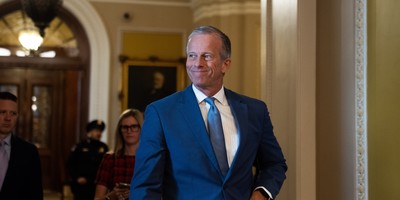Elon Musk prefers to move hard and fast. He likes to break things and bend them to his will. He is an experienced entrepreneur. In 1999, he sold his first business, Zip2, for over $300 million. In 2002, he sold PayPal for $1.5 billion. Today, he owns Tesla, one of the largest automobile manufacturers in the nation. He also owns Twitter, now rebranded as X, one of the largest social media companies globally. He's also the head of one of the nation's largest rocket manufacturers, SpaceX. He is also currently head of the Department of Government Efficiency.
But does this business experience translate well into government? Time will tell, but it appears, at least at present, that Musk has important lessons to learn about governmental operations.
While certain aspects of government can and should be managed similarly to a business, government is not a business. DOGE has faced significant controversy within its first month of operation. Although it has reportedly saved at least $55 billion in a single month, the methods employed have displeased nearly all Democrats and many Republicans.
Musk has terminated the U.S. Agency for International Development, citing significant inefficiencies within the agency. With Trump's endorsement, he distributed buyout packages to federal employees, of which approximately 77,000 accepted. Moreover, he has justifiably mandated that all federal employees resume full-time office work.
He has also sought access to highly sensitive systems, including the IT infrastructures of the Office of Personnel Management, Department of Labor, and Centers for Medicare & Medicaid Services. The systems he has accessed contain highly sensitive data, including health care information and Social Security details. He is currently seeking access to the Treasury's payment infrastructure, raising significant concerns regarding potential severe privacy violations associated with such access. To worsen the controversy, he has employed certain DOGE employees who have dubious pasts -- particularly with regard to sensitive data -- to assist him in accessing these systems and parsing through the data.
Recommended
Recently, he sent an email to all federal employees inquiring about their achievements from the previous week. The email, originating from the Office of Personnel Management, with the subject line, "What did you do last week?" requested employees to provide five examples of the work they completed in the preceding week. Musk stated on X that "failure to respond will be taken as a resignation" and that it was "consistent with President (Trump's) instructions."
The enforceability of this email to cause resignations is questionable, as at least three federal agencies, including the FBI, State Department and Pentagon, have instructed their employees to disregard the email. This indicates a more significant problem regarding Musk's management of DOGE. It's that the government is not a business, and while some aspects certainly should be run like one, there are far more considerations than simply saving money, and no one person can control the operations of each agency.
Corporations cater to their members or shareholders. The government exists to serve the people. The objectives of the government are unique. The government does not prioritize maximizing profits for the benefit of shareholders. The government is responsible for governing a nation.
When the government generates revenue, it doesn't do so to accumulate capital and pay out its shareholders in dollars. Instead, it uses that money to fund important government services that serve the people. What is important in government can sometimes be, at least in the corporate sense, wasteful.
Our government is, by design, inefficient. There are three branches of government, for instance. Extensive labor performed by one branch can be superseded by another branch. Consider the millions of taxpayer dollars expended on the creation, drafting, advocacy and enactment of legislation. A law signed by the president of the United States uses government resources to promote the legislation. A court subsequently nullifies that law as unconstitutional. Countless taxpayer dollars squandered on an ineffective law that ultimately achieved nothing. Was that waste truly wasteful? Would it not be more efficient to establish a singular branch of government that develops and possesses ultimate authority over all decisions? It would indeed be, but it would not be better.
Alternatively, consider public projects. It would undoubtedly be more efficient to have a single entity grant approval on their own terms. But shouldn't the people have a say? Is it wrong to have a statutorily mandated process that requires the government to spend hundreds of thousands of dollars soliciting community input, formulating new plans based on that input, and ultimately executing the project? These processes drive the cost up. A private company could do it more quickly and for much less money -- but is the government's process truly wasteful?
Government is inefficient, not because it wants to be but because it has to be.
The optics are significant as well. Over 3 million individuals employed by the federal government depend on this employment for their livelihoods. These individuals have devoted their lives to public service rather than to a corporation that offers products or services. The fact that they're serving the public, and that many have done so for decades, means something. They are more than just wasted dollars, even if their work isn't as efficient as we'd like it to be. When you fire them, you're not just firing another employee. It's different.
Musk must swiftly understand that government operates differently from businesses. He can do a lot of good with his expertise, but he needs to learn the system before he breaks it.

























Join the conversation as a VIP Member